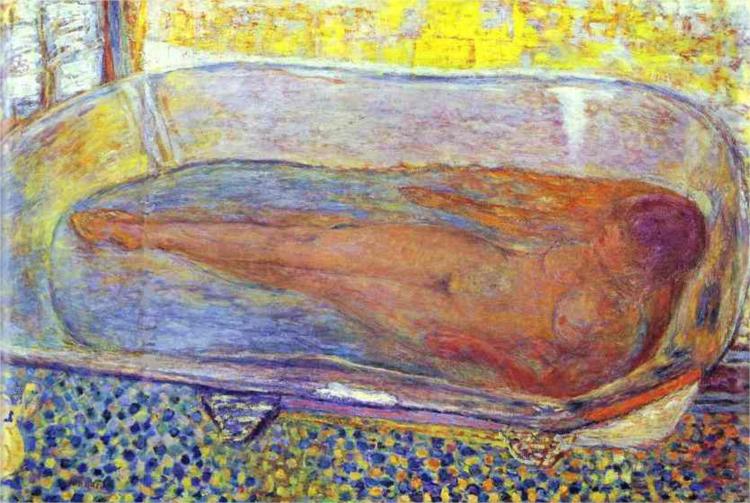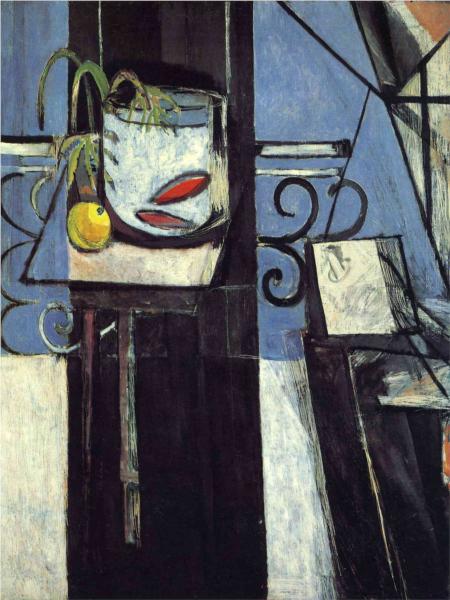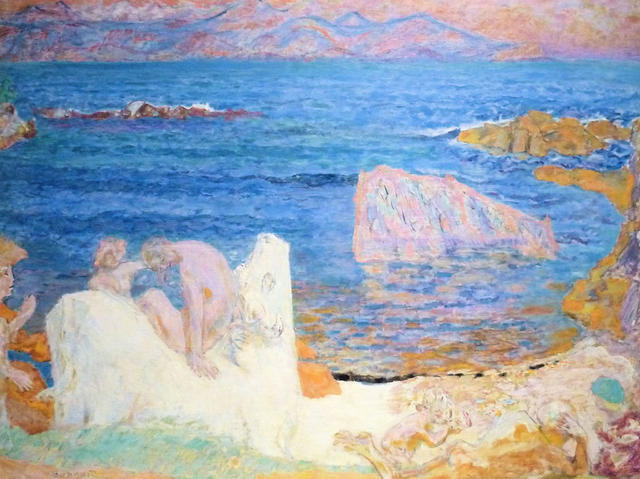… unlike Matisse, who is cold, undistracted, and full of arrogant purpose, he never managed altogether to transcend the taste of the milieu that sold and bought his work …
This is from ‘Review of an Exhibition of Pierre Bonnard’ (1948) found in Clement Greenberg: The Collected Essays and Criticism, Vol. 2, edited by John O’Brian (1986):
… On the evidence presented here Bonnard is almost a major painter, but not quite. Sensuousness, paint quality, color, and an original approach to composition are all present; also taste and erudition. But some final intensity is missing. Bonnard paints more suavely and generously than Matisse or Picasso, but he does not establish the bold, lucid, incandescent structures by which those two masters fix us to the spot, touch new feelings, and expand our consciousness of the possibilities of art. It is all too easy to dispose of the problem by referring to Bonnard’s intimisme, his motifs, the domestic minutiae, the comforts and discreet pleasures of sedentary bourgeois life; by saying that he is a lesser painter because his aspirations were less “heroic.” There is truth in all this, but it does not explain enough. After all, Matisse was something of an intimiste too.
Pierre Bonnard, Bather, 1935 [image from WikiPaintings]
Greenberg compares Bonnard to several other almost-but-not-quite major painters including Boucher and Fragonard:
… I believe the answer lies outside the artists themselves. Boucher and Fragonard were reassured and confirmed in their desire to please by the relatively high standards of a cultivated audience
… [Bonnard] too was unable to escape his audience.
There are, of course, great differences. Bonnard did not lack ambition, and he was a perfectionist within his limits; during the last half of his lfie he strove for a large, monumental kind of decorative painting that involved him in risks and failures. But unlike Matisse, who is cold, undistracted, and full of arrogant purpose, he never managed altogether to transcend the taste of the milieu that sold and bought his work, a milieu that as a whole stood aside from the developments of modern art after 1910 and refused to assign itself any more important purpose than the refinement of its daily life.
… much as Bonnard’s audience delighted in the purely culinary pleasures of painting, it did not want him to provide more than was asked for. And it was their taste for decoration and their antipathy for the divergent that Bonnard never outgrew. He experimented within the limits set for him, but he did not try very hard to break through them.
The pictures at the Museum of Modern Art seduce and warm us with their luxury, the paradoxical ease and measure of their shallow and airless depths; but the show does not contain what I would call a supreme masterpiece, nothing that sums itself up and conveys itself to densely and self-evidently as, say, Matisse’s Goldfish of 1915-16, or one of Picasso’s best cubist paintings, or a good Mondrian. These form the standard by which I find that Bonnard falls slightly short.
But only slightly.
Henri Matisse, Goldfish, 1915-16 [image from WikiPaintings]… Bonnard’s limp, deliberately “accidental” composition is responsible for some of his best efforts, but sometimes it is a way of avoiding the effort, risks, and study involved in the pursuit of intensity. The blues in the Abduction of Europa of 1919 build up to an astounding and large magnificence, which is reinforced by what seems the inadvertent simplicity of the composition; yet one can almost see the artist hesitating over the pale creams and pinks in the foreground and refraining from accenting them for fear of losing spontaneity by pushing the problem to the point where it would be necessary to study more carefully the contours that the pale shapes cut against the blues. And in the Corner of a Table of 1935 the artist seems to accept the too wide red band made by the table or tablecloth for fear, again, of losing the quality of inadvertence; yet it is obvious to anyone that the excessive size of the band spoils what is otherwise a beautifully painted still life.
-Julie


